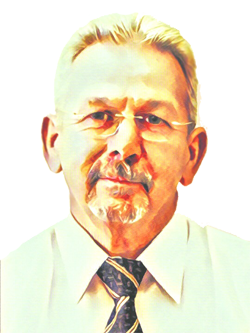

It’s amazing how random thoughts can lead from one theme to another when we are doing little more than ponder. With all the flying I’ve been doing lately, a very good example reared its head.
Charles Darwin, the noted naturalist and biologist, changed the world and the way in which man sees himself, forever, during the 19th century as he demonstrated his theory of evolution, which is now accepted as the basis of all definitive explanation of diversity of life.
Darwin was an absolute master of the science of behavioural science before it became ‘a la mode’, as they say. His writings on how we behave are essential reading for those of us who work closely with a wide diversity of nationalities and cultures. As a teacher, it is incumbent upon me to understand the motivation of my students, so that I can break down any barriers to learning.
Writing in ‘The Ascent of Man (1871)’, Darwin said, “Even when we are quite alone, how often do we think with pleasure or pain of what others think of us — of their imagined approbation or disapprobation; and this all follows from sympathy, a fundamental element of the social instincts.” He goes on to say this is certainly not a failing of man, but one of the many things that prevents us from becoming unnatural monsters.”
While on the face of it, we can’t change what others think of us, isn’t it interesting that one of the foremost scientists of our time implies that it’s a good thing? I wonder if it reflects our fallibilities, those that make us what we are, emotional and intelligent, at the same time, and that is why we have this ‘edge’ on other species? Certainly, it would appear so.
Darwin was also at pains to acknowledge we are an incipient species, which means we are not the finished product, so are not yet perfect. Given the acceptance of his theory of evolution, some of the nods to artificial intelligence in recent movies such as ‘AI’, starring Haley Joel Osment, ‘Ex Machina’, with Alicia Vikander, and ‘I Robot’, starring Will Smith, are not beyond the realms of reality.
Bill Gates published, in ‘Business at the Speed of Light (2000)’ the concept of a digital nervous system as a progressively more real entity, saying “A digital nervous system consists of the data processes that enable a company to perceive and react to its environment, to sense customer challenges and needs, and to organise timely responses.” Now imagine that capability within the customer service industry?
As I said in my introduction, we are led from one thing to another. If we are to delve further into Darwinism and his ability to look forward, in ‘The Origin of Species (1859)’ he wrote that, “the instinct of each species is good for itself, and has never, as far as we can judge, been produced for the exclusive good of others.”
Maybe in this statement, we can see Darwin’s fallibilities, as the global green movement is becoming not only an instrument of environmental concern focusing on the future of man and the planet, but a burgeoning political force.
Richard Dawkins, in 1976, writing in ‘The Selfish Gene,’ said intelligent life comes of age when it first works out the reason for its own existence.” And there, perhaps, we come to the nub of our problem as a race, and we haven’t worked out why we are here.
While it may well be correct that I am here, in Oman, and my purpose is to educate, and offer purpose to young Omanis, if I dig deeper, and ask myself why am I on the earth? Why do I exist? There is no easy answer.
I take comfort, and solace, in the thought that in every question ever posed of me, I have only two choices to make, yes or no, with both being the equivalent to right, or wrong. I believe that if I do the right thing more often than the wrong, I can establish at least a fundamental reason for my existence, and satisfy Charles Darwin’s incipient status. What about you?
ray petersen
petersen_ray@hotmail.com
Oman Observer is now on the WhatsApp channel. Click here



